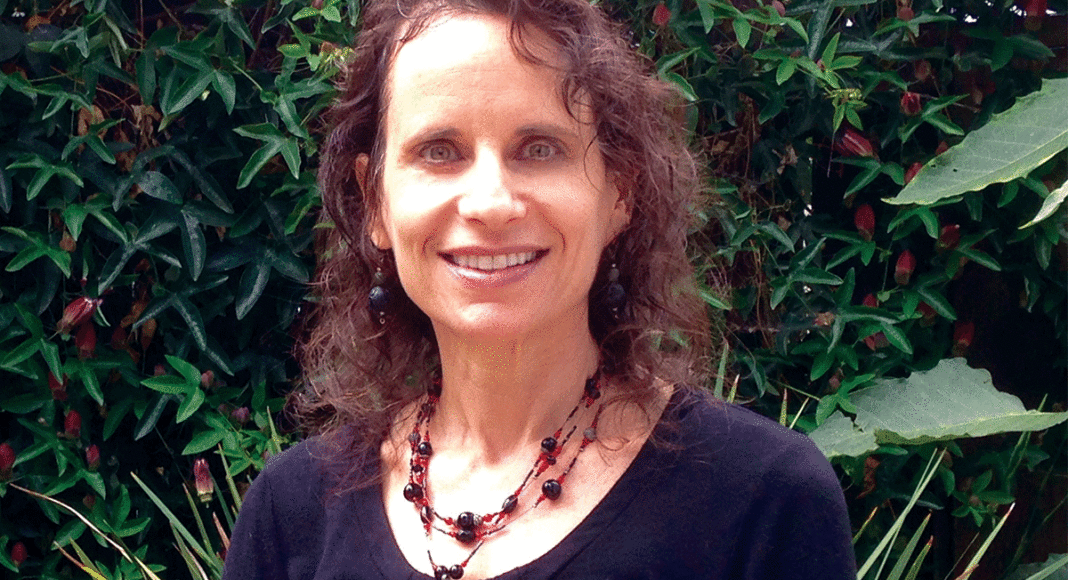A few years ago, licensed marriage and family therapist Andrea Wachter encountered a patient who, even after 25 years in her field, she never expected to treat: a weight-obsessed 6 year old.
In fact, Wachter started getting calls from several doctors in Santa Cruz County asking for help with their 6 and 7-year-olds obsessed with toning their abs, or telling their parents they felt fat. She published Mirror, Mirror on the Wall: Breaking the ‘I Feel Fat’ Spell and The Don’t Diet, Live-It Workbook with Marsea Marcus in June 2016 so that there’d be something for kids that age to relate to. Her latest book, Getting Over Overeating for Teens, comes out Dec. 1 and is geared for the next stage of development—adolescents the same age Wachter was when she first developed an eating disorder.
Wachter says she began dabbling in diets at age 12, and by 17 had a full-blown eating disorder.
“I kept trying different diets: protein shakes, cutting out fats, lowering carbs, counting calories, fasting—every fad known to man and woman. Eventually I discovered bulimia and I thought that was brilliant … but it turned out to be the road to hell,” says Wachter. “That’s what I did for years. Throw in drugs, alcohol, cigarettes and lunacy. That was my life.”
Wachter wants to reach young people as early as possible, especially in adolescence, when life’s problems can feel titanic and eating disorders can seem like a tempting Band-Aid.
For Wachter, she says, three main things led to her eating disorder: cultural messages of diet and perfection, her family, and her “breed.”
“I was a sensitive breed, as many of my clients are,” says Wachter. “Someone might get teased about their body and say ‘Oh screw them, they’re just mean.’ I got teased about the size of my body and wanted to die.”
It took getting new ideas from a variety of sources, like therapists and friends who wouldn’t “fat chat,” as she calls it—talk about weight, losing it, gaining it, calories, etc. The people she surrounded herself with talked about recovery, healing, their emotions, and how to confront them.
“It’s an ongoing practice to every day work on loving myself and loving my imperfections,” says Wachter. “Now it’s the aging process. In one of my blogs [on her website and Huffington Post] I wrote ‘I spent the first half of my life trying to lose weight and I refuse to spend the second half trying to lose wrinkles.’”
After Wachter got the help she needed, she wanted to share the tools she learned with those struggling with eating disorders—30 million of all genders and ages in the U.S., according to most recent numbers—that she could reach.
“The work that I do is all about loving yourself and feeling your deeper needs so you don’t have to turn to counterfeit, insufficient means of getting those needs met,” says Wachter, animated and unreserved over the phone—she likes catchphrases: “I call it ‘heal and deal with what you feel.’”
For her, that meant coming to terms with the fact that she wasn’t a weak person without willpower, but that society’s standards of perfection had been so ingrained in her and her family that they dictated her inner monologue.
“A lot of us are taught that we’re supposed to be happy instead of being taught that we’re supposed to be everything,” she says. “We’re supposed to be mad sometimes, sad sometimes, scared sometimes, sobbing sometimes, just like different weather patterns.”
Many people who struggle with eating disorders have an “unkind mind,” says Wachter, and go through the day “shoulding” themselves—shouldn’t eat that, shouldn’t say that, should’ve done this, etc.
Fighting that unkind mind takes finding things that are “life-affirming,” which, for someone in their 40s, is going to look different than for someone who’s 12 or 13, says Wachter. But since that early age is filled with even more terrifyingly pervasive pressures, young people need to have something outside of just Facebook, Snapchat and the like.
“Unfortunately these screens are sucking the life out of everybody, but especially adolescents because it’s fun, it’s great to surf the web,” she says. “But if that’s where they’re spending a majority of their time. That’s not life-giving.”
Most Americans fall somewhere on the spectrum of disordered eating with different levels of severity—maybe it isn’t life-threatening, but they’re constantly monitoring how much they eat—maybe binging in private, or struggling to some extent, says Wachter. On one hand “healthy-eating,” portion control and fitness are glorified in the U.S., while on the other, colossal portions are everywhere and the idea of savoring your food isn’t as mainstream as in other countries.
“Our culture has an eating disorder,” says Wachter.
There is hope, however; nowadays, Wachter isn’t tempted to binge or restrict and she enjoys the food she eats.
“It’s in part having a strong sense of self, having your GPS system in yourself be strong and clear: This is exactly what I want to eat, this is when I want to go to bed, this is how I want to be touched,” she says. “Sometimes we have to quiet our minds to even hear it and convince ourselves that we’re worthy, but everyone has that intuition.”
Info: ‘Getting Over Overeating for Teens’ comes out Dec. 1. andreawachter.com.














Dear Anne-Marie and Andrea,
I love the way you wrote this important Article and shared with us Andrea’s experience, stength, hope and wisdom!!
For me, my kids, grandkids and friends/family…..
I have Andrea”s & Marsea” Books; “Mirror Morror on the Wal”l & “Don’t Diet, Live it”
I have Ordered on Amazon, “I Feel Fat Spell.”
Plus, I get ALL of Andrea’s Huffington Post Blogs.
This Article REALLY did a GREAT job of expressing Andrea’s MESSAGE of EXPERIENCE & HOPE.
Thank YOU!!
Cathy Diaz
Santa Cruz, CA